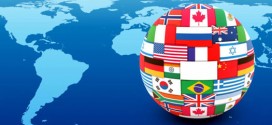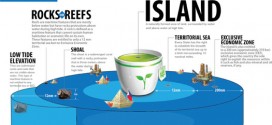Introduction Quintessentially, the United Nations Charter is an international treaty; its Article 33 in Chapter VI provides for mechanisms for pacific settlement of disputes. It provides that the parties to any dispute, shall, in the first place, and in cases where international security and peace is likely to be endangered, seek a solution by negotiation, enquiry, mediation, conciliation, arbitration, …
Read More »China’s Devaluation Gambit
How China’s Currency Policies Will Change the World The recent fluctuations in China’s currency typify the best and worst of a globalized world, where developments in one place can instantly change the political and financial calculations of governments in others. For most of human history, the communities, cultures and economies of the world existed independently of one another, separated …
Read More »Global Efforts To Fight Poverty
On 6 July 2015, the Secretary-General of the United Nations launched a UN report entitled “The Millennium Development Goals Report 2015” in Oslo, Norway. While wrapping up the progress under the MDGs, the report painted a mixed picture of the global efforts to fight poverty, especially in developing countries. The Secretary-General Ban Ki-moon hailed the efforts made in an attempt …
Read More »Dark Geopolitics of the Middle East
A third wave of geopolitics has been making its way into the Middle East’s political geography since the end of the Cold War. The first wave began with the collapse of the Ottoman Empire after World War I. The second wave followed World War II, when the European colonial order crumbled. The third wave will reach its apex with the …
Read More »A European Role in Palestine?
Saving Gaza From Israeli Terrorism The international community’s attention in the Middle East nowadays is inevitably focused on the Islamic State’s military advances in Syria and Iraq, the failed states of Yemen and Libya, the activities of extremists everywhere, and the continuing efforts to implement submitted a deal to contain Iran’s nuclear ambitions. Meanwhile, the oldest dispute in the region …
Read More »When Multilateralism Met Realism — and Tried to Make an Iran Deal
President Barack Obama’s Aug 6 speech on Iran, notable for its “my way or war” polemics, signals a hardening of the debate over the Iran nuclear agreement, known as the Joint Comprehensive Plan of Action, or JCPOA, just as Congress begins reviewing the deal. This political calcification reflects various factors, from presidential election polling to tensions between the Obama administration …
Read More »The Meltdown of the Global Order
How climate change is transforming the ground rules of power politics Just over a century ago, a British geographer Halford Mackinder laid out the fundamental tenets of a new discipline that came to be known as “geopolitics.” Simply put, he said, international relations boiled down to the intersection of unchanging physical geography with the vagaries of human politics. Only one …
Read More »South China Sea Conflict
Territorial disputes have plagued the South China Sea for the past sixty years, inciting episodes of heated conflict followed by periods of relative inaction. Various states in the region, including Brunei, China, Malaysia, Taiwan, the Philippines and Vietnam have claimed various territories or islands within the Sea as their own, based on a wide variety of justifications. But an upsurge …
Read More »Identifying and Preventing Future Threats to International Security
The last decade has clearly demonstrated that the nature of threats to international security has changed significantly. Structural challenges, such as terrorism, cyber-attacks and nuclear proliferation, have created an entirely new security environment. National states’ monopoly on using force is eroding, state boundaries have lost much of their relevance and private actors have increasingly become powerful in international security. The …
Read More »A Global Geography of Peace (and Violence)
Ongoing conflict in the Middle East and mass killings in the United States have made the world an increasingly violent place. That’s not necessarily true: Harvard’s Steven Pinker has shown that the arc of human progress has bent — in fits and starts — toward non-violence over time. But what of violence — and peace — over the past few …
Read More » Jahangir's World Times First Comprehensive Magazine for students/teachers of competitive exams and general readers as well.
Jahangir's World Times First Comprehensive Magazine for students/teachers of competitive exams and general readers as well.









